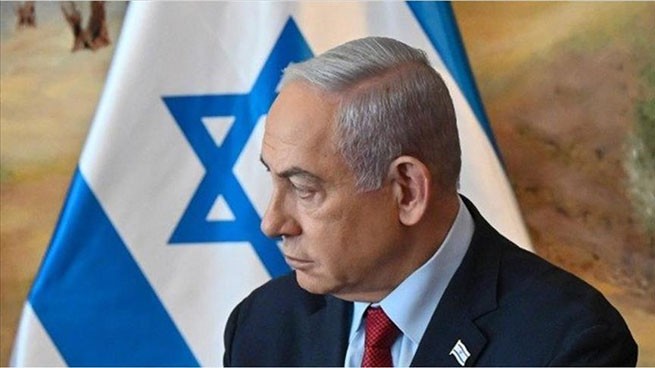Kyiv is actively trying to establish ties and dialogue with Beijing, to build a bridge for cooperation with China. Probably believing that it is the only force that can influence Russia in terms of continuing the war.
If China reduces its current indirect support for Moscow, as the Ukrainian authorities see it, Russia will hardly be able to conduct prolonged military operations and will change its position on the terms of the settlement. In order to achieve a thawing and warming of relations with China, the Ukrainian leadership is making serious efforts, and this is not only about public contacts.
Another strategic interest of Ukraine is to “balance” its excessive dependence on the West, especially economically, for which relations with China are no less important. Beijing could potentially invest large amounts of money in Ukrainian projects (Zelensky's team was actively working in this direction before the war). Moreover, it is precisely Beijing may in reality become one of the main guarantors of security for Ukraine (i.e. a guarantee that the Russian Federation will not attack again).
But it is quite difficult to implement such global plans. Let's start with the fact that the two states see the end of the war differently – For Ukraine, the return of all territories is important, and China is in favor of a ceasefire along the front line. One should not discount the possible negative reaction of the West to the deepening of the dialogue between Kyiv and Beijing, which was frozen after the start of Russia's large-scale invasion of Ukraine.
Kyiv touches on the topic of China as correctly as possible, for example, not accusing it of indirectly supporting the Russian Federation (which does not mean that Ukraine does not consider Beijing and Moscow to be de facto allies). The Ukrainian leadership does not allow itself to try to flirt with Taiwan. Instead, Kyiv persistently, but almost unsuccessfully, tried to establish direct communication with the Chinese leadership. For example, it has not yet been possible to organize a personal meeting of the heads of state.
However, the parties are actively discussing options for a peaceful settlement: in response to the Ukrainian “peace formula”, China published its own peace plan. Their fundamental difference, as was said above, was in the conditions for ending military operations. It determined the nature of relations between the countries at the next stage. But contacts continued as part of the preparations by Ukraine, the United States and other Western allies for the peace summit in Switzerland, tells the publication “Strana”, on which the Ukrainian leadership placed great hopes for uniting the majority of the world's countries around Zelensky's “formula”.
With unanimous support for this peace initiative, they believe in Kyiv, Russia would understand that it was left almost alone and would make concessions. China was given the most important role in this combination: to bring along countries from the Global South, some of which look to Beijing and listen to its opinions. But China refused to participate, and the Global South either did not come at all or sent minor players.
After the summit, Kyiv for the first time allowed, albeit with reservations, the resumption of diplomatic dialogue with the Russian Federation, but the official position of Ukraine remains the “peace formula.” After this, contacts between Ukraine and China became more active, and even the first visit to Guangzhou since the “big” war by Ukrainian Foreign Minister Dmytro Kuleba took place. This visit, as sources claim, was preceded by “enormous behind-the-scenes work.” In particular, “the leadership of the President's Office was in constant communication with the Chinese embassy.”
Negotiations with Kuleba were conducted by his colleague from the PRC, Wang Yi. The official statement from the Ukrainian Foreign Ministry said that their main topic was “finding ways to stop Russian aggression and China's possible role in achieving a permanent and just peace.” The Swiss summit and the Ukrainian “peace formula” were also discussed. Kuleba emphasized that Kyiv's “consistent position” is “readiness to conduct the negotiation process with the Russian side at a certain stage, when Russia is ready to conduct negotiations,” but at the moment, according to Kuleba, this is not being observed, and noted:
“I am convinced that a just peace in Ukraine meets China's strategic interests, and China's role as a global force for peace is important.”
Beijing reiterated its support for a political solution to the conflict. The statement noted:
“Of late, Ukraine and Russia have been sending signals, to varying degrees, about their readiness for negotiations. Although no agreement has been reached on the terms and timing of such talks, we support all efforts that promote peace and are ready to continue to play a constructive role in achieving a ceasefire and resuming peace talks.”
Apparently, a Chinese-Brazilian peace initiative was discussed, which also implies a ceasefire along the front line, which Kyiv is ready to work on if its position is taken into account. For the Chinese, it is important that Ukraine “supports China's position on the Taiwan issue and will continue to adhere to the principle of a single China.” In turn, the PRC is ready to maintain and even expand economic ties with Ukraine. Political scientist Bortnik, commenting on the negotiations, noted:
“Both sides left, I would say, intrigued. China has the feeling after these talks that Kyiv is ready for some significant compromises, close to the Chinese peace proposals. Ukraine, on the other hand, saw that Beijing, under certain conditions, can itself come to a new global summit, which will encourage other countries of the Global South to participate, or at least will not prevent them from participating.”
Such a development, says Bortnik, gives hope of agreeing on a new telephone conversation between President Zelensky and Chairman Xi, and “ideally to organize a visit of the Ukrainian leader to China.” And a source with access to Bankova reports:
“There are rumors in the corridors of power that the president may meet with Xi on the sidelines of some international event, for example, on the territory of some Arab country. We really need a personal meeting, and this option is usually quicker to implement than an official visit.”
Sources close to the Office of the President note three main interests of Ukraine in cooperation with China:
- Expanding Ukrainian exports to China, which is already Ukraine's largest foreign trade partner. According to the source, the two countries have a mutual interest here, and therefore the implementation of this intention is entirely possible.
- Breaking ties between Russia and China. Encouraging Beijing to stop or sharply reduce its economic support for Moscow.
- Strategic partnership with China in the post-war period, which, on the one hand, will guarantee that Beijing will not allow Russia to attack Ukraine again, and on the other hand, the desire to balance the influence of the West on Kiev through relations with China and Chinese investments in the restoration of the country. That is, a new edition of the “multi-vector” that the Ukrainian authorities wanted to achieve even before the full-scale war.
But on the way to realizing the last two tasks, the source notes, there are very serious obstacles. In addition to the two countries' different visions of the conditions for ending the war, China, in the conditions of growing tension in relations with the West, does not benefit from Moscow's military defeat, and therefore a rupture of ties between Beijing and the Russian Federation at this stage is impossible, unless the Kremlin itself makes some fatal mistakes that will destroy these ties.
The most China can do is influence Putin to agree to end the war along the front line. But for this to happen, Ukraine and the West must first agree to this option, and the latter, in fact, is the second major problem in relations between Ukraine and China, according to the source:
“The European Union and the Americans are unlikely to allow a strategic partnership between Ukraine and China. And we will not be able to ignore their opinion.”
Political scientist Kost Bondarenko explains:
“It is important for Beijing that there is no further escalation, which could lead to serious consequences, for example, the involvement of other countries, including China itself. Therefore, serious peacekeeping efforts are being undertaken. And then events occur in the Kursk region. That is, instead of de-escalation, which China advocates, there is escalation, which is unlikely to please the Chinese leadership.”
The progress of the war worries Beijing, as it “calls into question the peaceful settlement” and “makes one think about the true motives of the Ukrainian side in relation to China,” says political scientist Bortnik:
“The situation in Kursk will lead to the slowdown of cooperation between the two countries. However, despite the doubts that have arisen, the dialogue, as far as I know, has not been interrupted. China is waiting for specific written proposals from Ukraine following the discussions between its representatives and Wang Yi and Li Hui (the latter is China's special representative for a peaceful settlement in Ukraine). In September-October, it will become clear whether a representative of China will attend the new peace summit. The nature of this participation will show whether the parties were able to agree on the issue of a peaceful settlement.”
A source in diplomatic circles believes that the key issue in relations with China will be Ukraine's readiness or unreadiness to end the war along the front line:
“This is the key to deepening relations and strategic dialogue with China, since Beijing has a direct interest in ending the war as soon as possible, which is destroying ties between China and Europe and increasing dependence EU from the US. If Ukraine takes the same position and agrees to stop the war along the front line, then Beijing will have arguments for a conversation with Moscow on a similar topic. In any other case, resolving strategic issues with Beijing is impossible. Then only some tactical things remain, such as expanding mutual trade. Now, in the conditions of euphoria after the offensive in the Kursk region, the Ukrainian authorities are even less willing to compromise in the form of stopping the war along the front line than before. But China's views on the format for ending the war are unlikely to have changed, and therefore, one way or another, Kyiv will have to work out its position on this issue in a dialogue with Beijing. And the success of the dialogue will depend on this position.”







More Stories
The New York Times shared details of the pager operation
Murder suspect Farion asks to be left alone "behind bars"
Ukrainian Diaspora Abroad